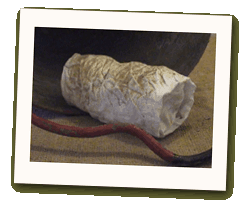
|
Ghosts in Ireland - supernatural, paranormal, occult, magic or myth, does a ghostly sprit's phantom-like apparition haunt the mill or is it a trick of the light in the dead of night? | |
| Irelandseye.com Home Features Culture History Travel GhostWatch Latest The Background Hunt the Ghost The GhostWatch Saga Services |

Helena final day at the MillWhile this is a sensational, significant discovery; it also gives us poignant insight into Helena's last day in the mill. On the day she died, Helena was on her way to a concert. She brought her treasured recording and newspaper reviews with her to the mill because she intended to show these to someone who was due to also attend the concert. We do not know whom she had arranged to meet at the concert, but she must have believed or known that they were interested in her talent as a singer. We believe that she had arranged to meet a talent agent at the concert to discuss an audition to join a professional choir. We do not know whom she had arranged to meet at the concert, but she must have believed or known that they were interested in her talent as a singer. We believe that she had arranged to meet a talent agent at the concert to discuss an audition to join a professional choir.Barra MacNasÌge recorded Helena's voice on a brown wax cylinder. This recording method was a fairly new technological innovation in 1912 and recordings were rare. We believe that this is the only recording Helena ever made. If she had owned more than one, we believe she would have brought all her recordings to play for the unnamed talent agent at the concert. The Capricorn and Cornucopia Music Publishing Company folded during the First World War and we have not found any trace of MacNasÌge in business elsewhere in Belfast nor do we know what happened to him after 1916. Perhaps when Helena fell and died at the basement stairs, the bundle she had been carrying landed close to her. Shocked workers from the basement immediately gathered around the dead Helena and by the time Margaret Maxwell descended the stairs, the place was thronged with dismayed onlookers. Work had finished for the day and as the mill workers from all departments came downstairs, they would have all stopped and looked on the dead woman. While they waited for a priest to arrive to administer the last rites, the bag was set aside, simply placed out of the way. By the time the priest and Helena's family arrived, the bundle was already forgotten. A curious mill worker may even have lifted the bundle, looked inside and aware of the valuable, rare cylinder, hid the bundle but never removed it from the mill. We could offer many versions of events but the true explanataion remains a mystery. When we played the cylinder, we realised that this was the first time Helena's recording had been heard in nearly 90 years. It also occurred to us that the talent agent never had the opportunity to hear the recording. The phonographic cylinder lay hidden and forgotten with Helena's precious hoard of newspaper reviews. Concealed for decades, the pathos of this discovery is that the Blunden family did not have this recording as a memory of Helena. |
[ Back to the top ]
All Material © 1999-2005 Irelandseye.com and contributors